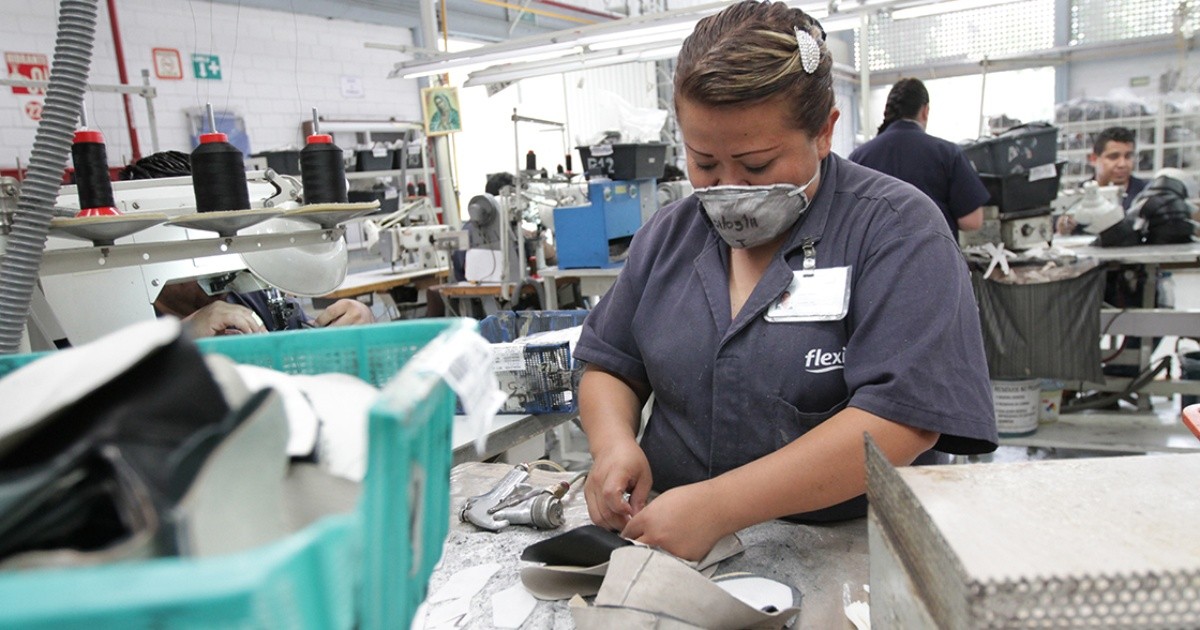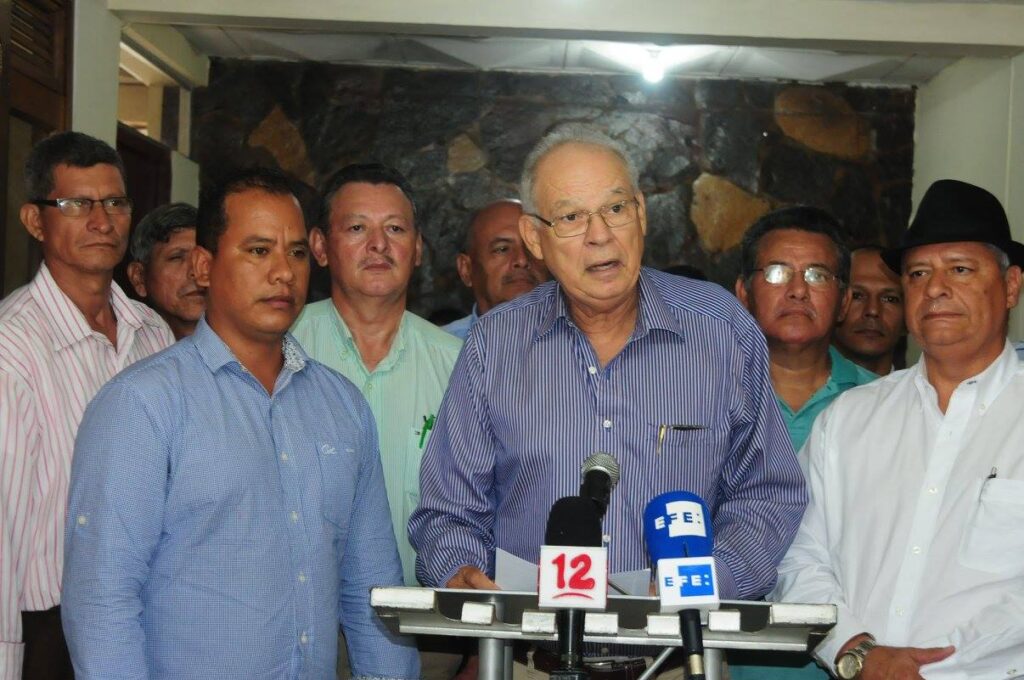More of 31 million jobs lost they do not go unnoticed. The effects of the Covid-19 crisis on labor markets in Latin America and the Caribbean have been more than palpable. We saw them, we live them and they are still present despite some signs of recovery between 2021 and 2022 that are far from optimal. Many jobs were lost fewer hours were worked and less income was generated. But, in addition, the pre-existing structural problems, such as low productivity, labor informality and gender gaps, deepened.
In Mexico specifically we observe that the informality rate, even though it is lower today than before the crisis, it is still high compared to other countries in the region with similar GDP per capita. And it is that informality fell radically throughout the region during the crisis, but that did not translate into greater formality. Unlike other crises, the Covid-19 pandemic reduced both formal and informal employment. And while in previous crises informality had reacted in a countercyclical way, increasing while formal employment fell, on this occasion, largely due to the confinement measures, it was not so. This meant that many in the region found themselves unable to generate income.
On the other hand, in Mexico, the salaries have not yet recovered their pre-crisis levels, and although they are better than in the entire period 2009 to 2018, the country’s productivity has fallen sharply. From the fourth quarter of 2017 to the fourth quarter of 2021, the labor productivity decreased by 8.1%, and is today below its level in 2005. The crisis also represented a significant setback in the gender equality In the labor market. We estimate that in September 2021 the deficit in female employment in Mexico due to the crisis was 9.1%, versus only 2.2% in male employment.
But we gain nothing by concentrating only on the shock of the pandemic without looking at the opportunities for renewal that it presents us.
The world of work is transforming at an unprecedented rate
The labor Relations they were already changing rapidly before the Covid-19 crisis, and the pandemic served to accelerate an ongoing metamorphosis.
What began for many as a timid experiment in telecommuting, rushed and boomed during the pandemic. The growth of the digital economy; remote work and income generation through digital platforms; and the transition towards greener economies, are trends that are changing the labor markets of Latin America and the Caribbean, and that we need to take advantage of to build a new labor architecture.
The industry of information technology, for example, has grown at a tremendous rate, even in a period of crisis. In accordance with data from the IDB Labor Observatory, Working in alliance with LinkedIn, this was a sector that remained without major changes in its hiring rate between 2022 and 2021, and even grew. It makes sense, since it is the sector most prepared to move to the remote work without friction, and that the transition of other sectors to teleworking has increased the demand for technological services.
The work through digital platforms it is also gaining more and more strength. Between January and March 2020, the download of telecommuting applications multiplied by 20 in the region. In the case of mobility and food delivery platforms, since before the pandemic they were already a source of additional income for people with different occupations. As a consequence of the pandemic, its use increased, allowing many workers to stay afloat in the midst of the crisis.
On the other hand, between 10 and 35% of workers in Latin America and the Caribbean joined telecommuting during the pandemic, according to estimates from our Labor Observatory. At the peak of the pandemic (June 2020), the percentage of teleworkers in Chile, Mexico or Uruguay was between 20% and 40%. However, the adoption of telecommuting it is not equitable, since not everyone can telecommute. Analyzes reveal that telecommuting is feasible for the best paid occupations in Mexicowhich is why it seems that new technologies help people in lower-paid occupations less.
Both telecommuting and work on digital platforms require a proper regulationwhich allows these activities to be carried out in a productive, efficient and equitable manner, adapting to the needs and reality of the new world of work.
Finally, sooner or later all countries will face the challenge, but at the same time the great opportunity to move towards green jobs. According to a report by the Inter-American Development Bank and the International Labor Organization, the transition to a net-zero carbon emissions economy by 2030 may allow the creation of fifteen million net jobs in Latin America and the Caribbean. But this transition requires a boost from public policies, including measures to support the labor reinsertion of people who would lose jobs in polluting sectors.
Towards a new architecture for labor markets
Despite some signs of recovery, labor markets of Latin America and the Caribbean are still in trouble. There’s a triple challenge:
- Design policies with an inclusive approach to recover from a shock that it still has significant effects, and may continue to do so for many years.
- Improve the quantity and quality of jobs, addressing pre-existing challenges in labor markets and investing in skills building.
- Take the lessons learned in this crisis, to design policies that allow us to face the next crises.
In order for us to recover and transform jobs in Latin America and the Caribbean, it is essential to:
» 1. Accelerate the recovery of employment with an inclusive approach
The region must facilitate the transition of workers and companies to emerging sectors that are creating jobs, promoting effective hiring and training of the workforce.
Measures specifically aimed at helping young people find formal jobs are particularly important in Mexico given that in March 2022 the number of jobs registered with the Mexican Social Security Institute for minors 29 years of age or younger was 3.2%, lower than in March 2019. Without a major effort to promote the formal youth employmentthere is a risk that the pandemic will leave a permanent scar on the employment trajectories of the generation reaching working age now.
- Support proper connectivityinnovation and the digital transformation of companies to take advantage of opportunities in a changing world, is also key.
- On the other hand, we can reduce gender gaps, working so that women choose and have access to careers with well-paid jobs, such as those associated with science, technology, engineering and mathematics (STEM, or STEM in English). In the same way, supporting the expansion and improvement in the quality of care systems can help women to enter the labor market, together with the promotion of an equitable division of family tasks between women and men, because today the burden of caring for others and household chores falls disproportionately on them.
- Workers also need regulations support them to achieve better working conditions—with a prudent approach to the minimum wage and the guarantee of the right to collective bargaining—without trying to raise wages to the point where companies cannot pay. A complementary effort would be to improve the levels of public investment, especially in economically lagging areas, to improve productivity.
» 2. Develop relevant skills for the new world of work
It is urgent to invest in policies to strengthen job skills aimed at people who have lost their jobs, or who are seeing their jobs and tasks transform due to the growing demand for digital, telecommuting, and green skills. Upskilling and retraining programs should focus on skills relevant to the highest quality and most in-demand jobs in the economy, and on providing skills throughout workers’ lives.
Companies need to rethink their vision of what an “employee” is to empower them in their evolution towards greater interaction with new technologies and digital platforms, as well as evolve into a continuous training model of greater agility. We need to ensure that no one is left behind due to lack of skills, and that companies have incentives to settle and stay in the region because they find qualified human talent, or with the possibility of being trained effectively in short periods of time.
» 3. Build a stronger labor market to better face new shock to future
On the one hand, it is important to promote regulations that adjust to the changes that we are experiencing in the Work market. On the other hand, it is necessary to carry out the labor and social security reforms necessary to transform the labor market in the future, and be less vulnerable to shock.
To address the problem of high informality and low coverage of pension systems, the social security reforms they could make certain benefits universal and independent of a person’s status in the labor market. In turn, such benefits could be financed with general taxes instead of labor taxes, promoting formal employment, and simultaneously reducing its cost. In this way, a universal system it would eliminate the erratic coverage of social security that changes from one year to another depending on the person’s work history, in addition to promoting labor formality through lower non-salary labor costs.
It is also advisable to build from now on robust and inclusive systems of protection for the unemployed that allow people to be supported in the face of job losses that occur even in the best of times, and to have ready and scalable public policies in the face of the following crises.
In this International work day I invite the countries of Latin America and the Caribbean to see the great opportunity we have to transform labor markets, and to take advantage of this moment of change to achieve a more productive, inclusive and resilient future of work. At the IDB we are here to support these growth paths in a sustainable and inclusive manner, in tune with our 2025 Vision to reinvest in the Americas.
*Laura Ripani is the head of the IDB’s Labor Markets Division. She specializes in the area of the future of work, with a particular interest in improving opportunities for young people. (@Laura_Ripani)

















